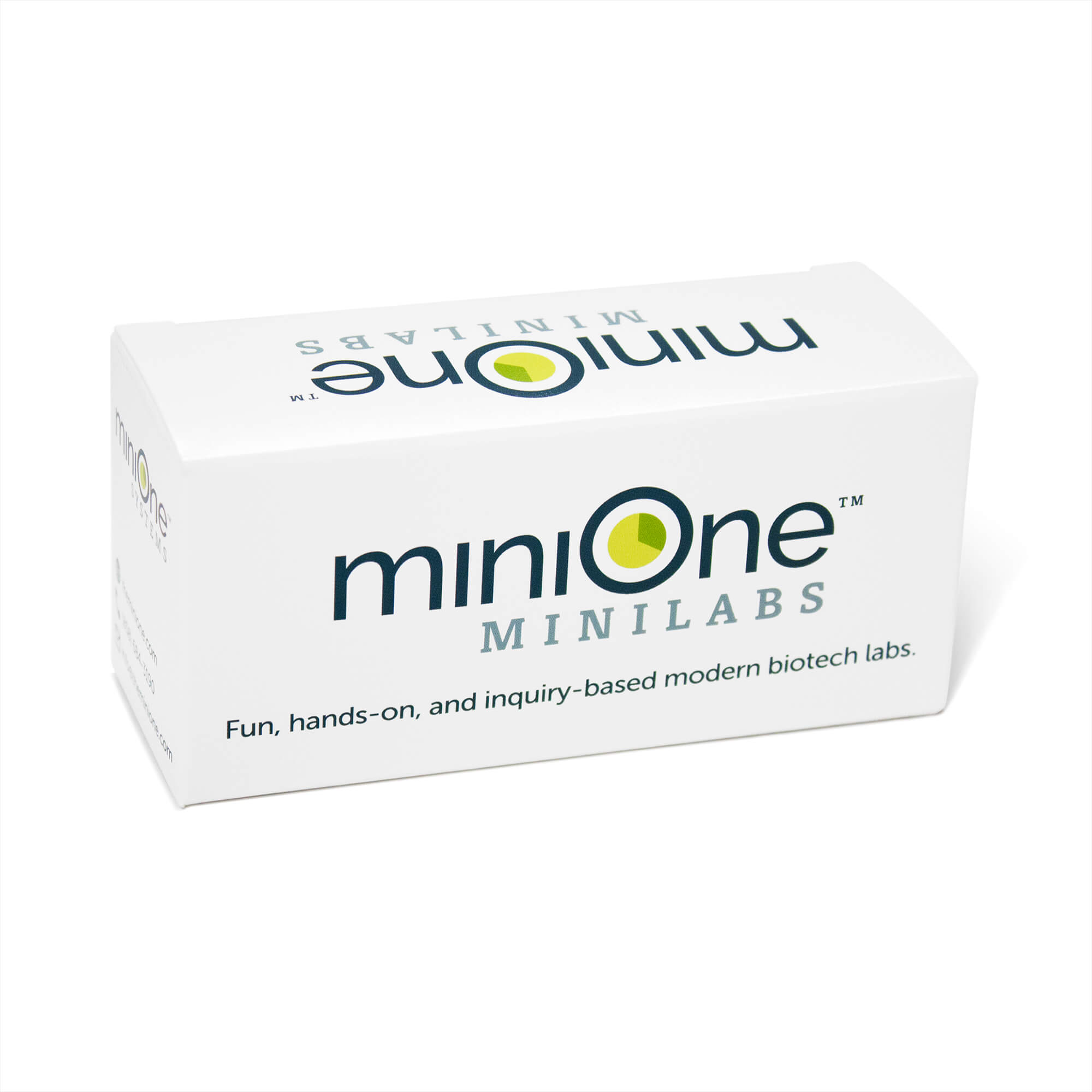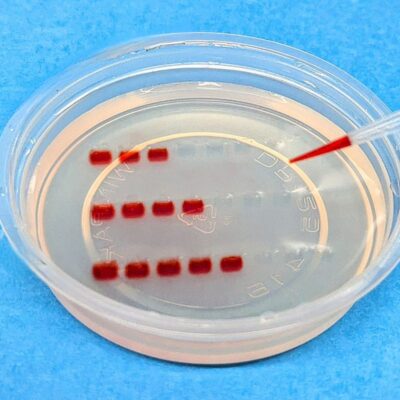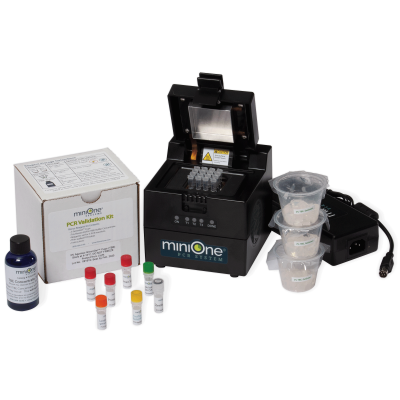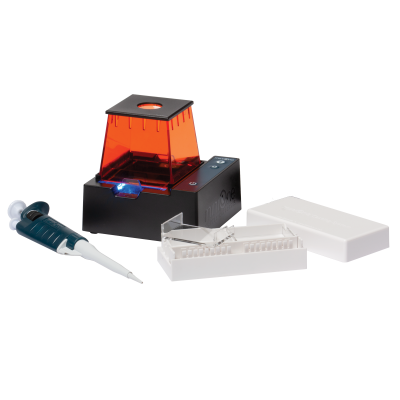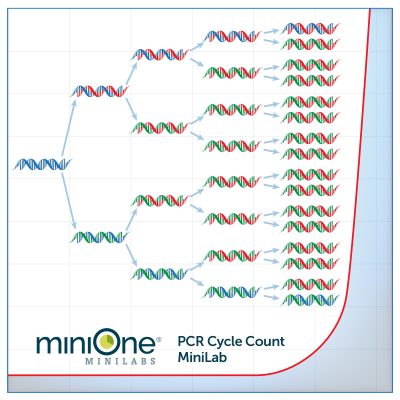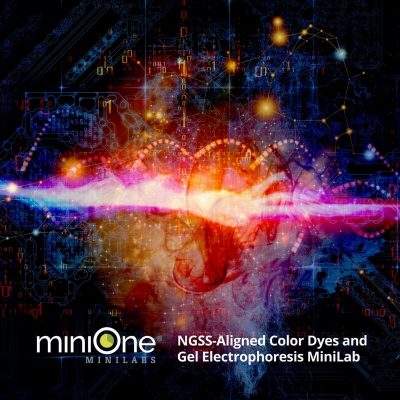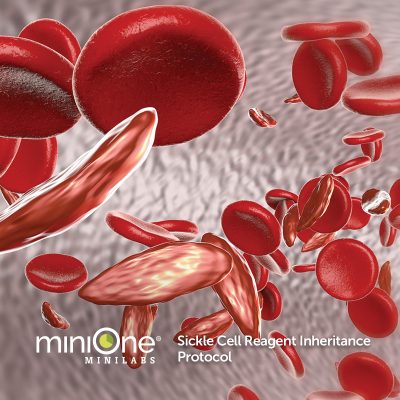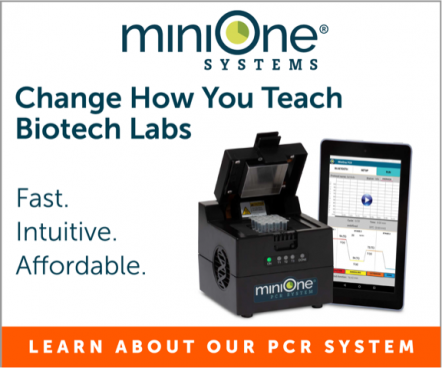Description
Polymerase Chain Reaction (PCR) is an essential technique in today’s molecular biology and biotech applications. Starting with a small sample of DNA, scientists can produce billions of copies of a specific fragment quickly and affordably. With our PCR 101 and Gel Electrophoresis MiniLab, students amplify fragments from the Lambda phage genome while learning the mechanism of DNA amplification with PCR and analyze their results using gel electrophoresis.
- Fast, affordable, and hands-on lab to teach the fundamentals of PCR
- Students will understand the molecular mechanism of Polymerase Chain Reaction (PCR) and gel electrophoresis
- Students set up, program, and monitor their own PCR reactions via a wireless mobile device
- Students cast, load, and run a gel to estimate the size of PCR fragments in comparison to a molecular weight standard
- Hands-on lab that can be completed in two class periods
- Store at 4°C; GreenGel™ Cups should be left in the original box and protected from light
- Guaranteed stable for three months with proper storage
- Appropriate for high school life AP, honors and advanced biology students (grades 9-12)
Materials Included in each MiniLab:
Each PCR101 MiniLab contains enough materials for 10 workstations, 2 – 3 students per workstation.
Materials include:
- FastTaq PCR MasterMix (2X)
- Three primer sets, both forward and reverse primers included in each set
- Lambda phage genomic DNA
- Sterile nuclease-free water
- MiniOne® DNA marker
- MiniOne® 5X sample loading dye
- Ten 2% agarose GreenGel™ Cups
- One bottle of 100 mL Tris-Borate-EDTA (TBE) buffer concentrate, enough to make 2L of 1X running buffer
- One bag of 0.2 mL thin-wall PCR tubes
- One bag of 0.65 mL microcentrifuge tubes
**Please note the following equipment is REQUIRED but not included:
The following equipment is suggested but not required:
- Centrifuge capable of spinning PCR tubes at a minimum of 8000 RPM, such as the MiniOne Multi-Speed Centrifuge


